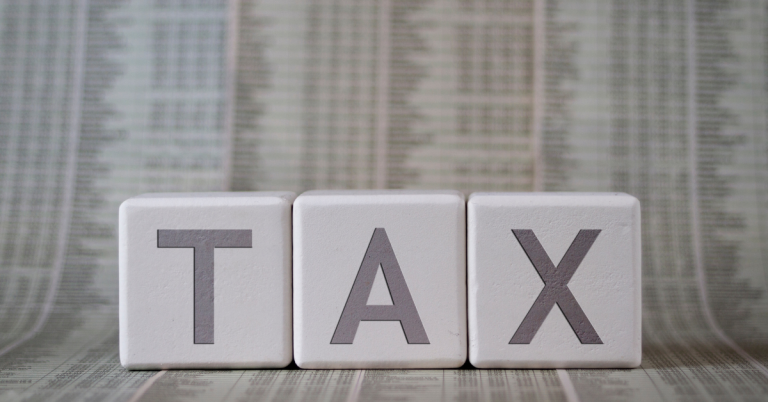What Kinds of Small Business Grants Are Offered in the United Kingdom?
There are many different types of smaller business grants in the UK. These include:
o Small Business Rate Relief Scheme – This scheme offers businesses a tax break based on how much they spend on premises.
o Enterprise Investment Scheme – This scheme allows companies to claim capital gains tax relief on investments in qualifying firms.
o Entrepreneurial Loan Guarantee Scheme – This scheme provides loans to entrepreneurs to help start up their business.
o Venture Capital Grants – This scheme helps fund early stage investment in innovative technology ventures.
o Charity Grant Scheme – This scheme offers money to charities operating in the UK.
o Local Enterprise Partnerships – This scheme works with local councils to support local businesses.

What is the difference between a grant and a loan for a small business?
A small business grant is usually awarded to help businesses grow and develop. You might receive funding to expand your premises, buy equipment, train employees or launch a marketing campaign. Small business loans are used to finance day-to-day running costs such as rent, salaries and utilities. They could even be used to fund start-up costs like buying stock or setting up a website.
The type of loan you apply for depends on how much money you want to borrow and what you plan to use it for. If you’re looking for a short-term loan, you might consider a payday loan. These are often very expensive and involve taking out multiple loans over several weeks or months. If you’re planning to take out a larger loan, you might prefer a personal loan or secured loan. Secured loans are taken out against assets, such as land or shares.
If you’re applying for a small business grant, you’ll probably be asked to show evidence of your plans to make use of the funds. For instance, you might be required to provide a copy of your business plan. In return, you’ll likely receive a smaller sum of money than you’d get from a loan. However, you shouldn’t feel pressured into signing anything without fully understanding what it entails. Remember, you don’t have to repay the money if you lose the job.
How to apply for small business grants
The Small Business Innovation Research Program (SBIR), Small Business Technology Transfer (STTRA), and Microbiological Technologies Commercialization Programs (MTCTP) are three federal government agencies that fund research and development activities related to commercializing products and processes developed under federally funded research and development contracts. These programs are administered by the National Institute of Standards and Technology (NIST).
There are two main categories of STTRA programs:
1. Phase I these provides support for feasibility studies, and help determine whether an idea will work
2. Phase II these provides support for further development of concepts that have shown promise during Phase I
Grants are awarded based on merit, and competition among applicants. Applicants must submit a proposal detailing how they intend to use the funds to develop their project into a viable product or process. Proposals are reviewed by a panel of experts who evaluate the technical merits of each proposal, including the potential market value of the resulting technology.
Government grants for small business
There are many different grants available to small businesses. Some of these grants require a lot of paperwork and some do not. Make sure you check up on what types of grant you qualify for before applying. You can find information about government grants here.
You can also look into local organizations that provide funding for startups. They often offer free training courses and mentorships to help new entrepreneurs succeed, like the following examples:
The National Association of Counties offers free online webinars and workshops to help local governments understand how to support entrepreneurship.
The US Small Business Administration provides resources for starting and growing a business.
The UK Government offers grants for start-ups and established businesses.
Innovate UK
New Anglia Growth through Innovation (NAGIT), a £1.5 million regional growth fund, has been launched today by Innovate UK and the East of England Development Agency. NAGIT supports small and medium sized enterprises (SMEs) and startups across the region, helping them grow and develop.
The fund will provide grants to help support innovation projects in areas such as digital technology, energy efficiency, life sciences and healthcare. Projects must be based in one of the six local authorities in East Anglia – Cambridgeshire, Norfolk, Suffolk, Essex, Hertfordshire and Bedfordshire.
Grant applications are now open and close on Friday 31st January 2020. Applications can be submitted online via the NAGIT portal at www.nagit.org.uk/apply. Grants will be awarded on a rolling basis over four rounds, starting in April 2020.
Applications must include a business plan outlining how the project will deliver value to customers and generate revenue. Applicants must demonstrate that there is potential for commercial success. Successful applicants will receive up to 50% of the grant award.
For further information about the programme please contact Sarah Clarke at [email protected] or call 01223 554 060.
R&D tax reliefs
Research and development tax reliefs are designed to encourage companies to invest in research and development activities. In Ireland, there are three main types of R&D tax breaks:
• Productivity Tax Relief – This allows businesses to reduce their corporation tax bill by up to 50%.
• Investment Allowance – This provides a tax break for qualifying investments.
• Innovation Credit – This gives a refundable tax credit of 20% of eligible expenses incurred during the previous calendar year.
Grants for unemployed entrepreneurs
The government announced it is closing the New Enterprise Allowance scheme, which offered grants to start businesses. However, there is still hope for those who are self-employed. If you’re claiming Universal Credit, you may qualify for 12 months of startup money. This is called the “self-employment allowance.” You’ll receive £2,400 per month, plus £1,200 for each child under 16 living in your household.
If you apply for the scheme, you must prove that you’ve been looking for work since April 2018. Your application will be assessed by HMRC, and if approved, you’ll receive payments every month.
A Work Coach could help you find out how to make the most of your money. They’ll give you advice about what to do next, such as whether to take part in a training course, and where to go for support.
Grants for employing a trainee
Apprenticeships are a great option for those looking to gain work experience while earning some cash. They’re also a fantastic way to develop a skill set. But you don’t always have to pay the apprenticeships levy if you run a small business.
The government introduced a tax called the apprenticeship levy in April 2017. This applies to employers whose annual turnover is less than £3 million. If you fall into this category, you won’t have to pay the levy.
There’s a lot of money being invested in apprenticeships across the UK. In fact, there’s enough funding to cover everyone in England. But it’s not enough to meet demand. So, the government announced plans to increase the number of places offered by 2020/21.
Grants for installing high-speed broadband
Businesses in rural areas may now qualify for grants towards the costs of installing high-speed broadband. This follows a change in rules announced earlier this month that allows businesses across England to apply for funding under the government’s Digital Infrastructure Grant Scheme. Previously, companies had to live within 30 miles of a local exchange network or be based in a town with less than 2,500 people. Now, the distance limit has been removed.
Up to £3,500 of vouchers may be available via the government’s gigabit voucher scheme. Those eligible include small businesses, charities, public sector organisations and social enterprises. They must be located in one of the following postcode districts: BT1 – BT19; BT20 – BT29; BT30 – BT39; BT40 – BT49; BT50 – BT59; BT60 – BT69; BT70 – BT79; BT80 – BT89; BT90 – BT99; BT100 – BT109; BT110 – BT119; BT120 – BT129; BT130 – BT139; BT140 – BT149; BT150 – BT159; BT160 – BT169; BT170 – BT179; BT180 – BT189; BT190 – BT199; BT200 – BT209; BT210 – BT219; BT220 – BT229; BT230 – BT239; BT240 – BT249; BT250 – BT259; BT260 – BT269; BT270 – BT279; BT280 – BT289; BT290 – BT299; BT300
Air quality grant schemes
There are grants available to businesses that want to install charging points to charge up electric vehicles. These include £1m ($1.3m) worth of funding from the government to support the installation of 10,000 charging points in England over three years. The money will go towards installing charging points for electric cars and vans.
UK cities including Birmingham, Leeds, Nottingham and Sheffield are offering financial incentives to businesses and individuals to encourage them to use clean fuels such as electricity and hydrogen. They are doing this by providing free parking spaces for those who choose to use clean fuels.
In London, there is a scheme called “Clean Air Zones,” where companies can apply for permission to set up shop near busy roads. This allows them to reduce traffic congestion and emissions while reducing noise pollution.
Grants to help you launch or expand a business.
Simply Business runs an annual competition where it gives grants to small businesses across Britain. This year’s winner will receive £25K for his/her business – register your interest now to find if you’re next big winner.
Small business startup grants
The Small Business Innovation Research (SBIR) program provides federal funds to small businesses engaged in research and development. These companies must use the money to develop products that meet specific needs identified by the government.
The Small Technology Transfer Reauthorization Act of 2013 (STTR) allows the government to award grants to small businesses engaged in technology transfer. This includes developing technologies that could benefit the United States.
Grant applications are open to small businesses located in the United States. They must be owned or controlled by individuals residing within the United States.
Applications are due May 15.
The National Lottery Heritage Fund
This fund helps preserve our culture & heritage
There are grants available for both NEW & EXISTING projects
These projects will help improve the LIVES OF PEOPLE WHO LIVE IN AREAS WHERE THERE ISN’T MUCH MONEY AROUND
The National Lottery Heritage Foundation is pleased to announce the launch of the 2017/18 Heritage Lottery Fund (HLF) Grants Programme.
Applications open on Thursday 9th September 2018 and close on Monday 12th November 2018.
Grants for small businesses awarded to young entrepreneurs.
The Prince’s Trust offers free enterprise courses for youth aged 16 to 25. These include entrepreneurship, financial literacy, personal development, leadership skills, and employability. They aim to help young people develop into independent adults ready to take charge of their lives.
The Prince’ s Trust provides grants for new business owners. This includes funding for equipment such as computers, printers, scanners, fax machines, photocopiers, phones, and software.
Mentorship is an important part to any successful business. A mentor can offer invaluable advice and guidance to a budding entrepreneur. In return, the mentor receives recognition for his/her contribution.
There are many different types of mentorship programs available. Some focus on specific industries while others cover a wide range of topics.
Frequently Asked Questions
How much did the government spend on individual and corporate assistance in total?
The latest figures from the Office of Budget Responsibility (OBR) show that government Covid support has cost the public purse over £169 billion since 2020. This includes funding for those affected by coronavirus, including people receiving Universal Credit benefits, NHS workers, carers, teachers and police officers.
Most of this additional spending went towards helping individuals, at £100billion, while the remainder was directed towards supporting small firms and large companies. Almost two thirds of the overall spending (£126billion) occurred in 2020/21, with forecasts for 2021/20 set at just under £44billion.
How did support alter during the crisis?
The UK Government announced a range of measures to help people during the COVID-19 lockdown. Support included free coronavirus tests, loans for small firms, food vouchers for those struggling financially, and payments for self-employed workers. In April 2020, the Chancellor Rishi Sunak announced a further £330 billion stimulus package to boost the economy. This followed a review by the Treasury into the impact of the initial support programme. A summary of the findings are presented in the following chart.






